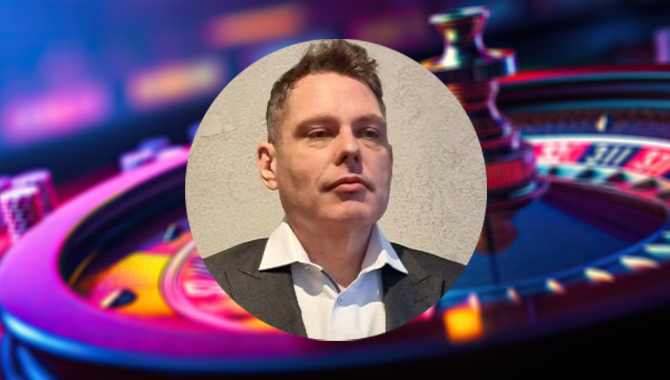As of writing this article, I am three sessions into Saroca’s LeadHERship Program. Led by Emily Leeb and Claire Adamou, the sessions have been designed to take women in the gaming industry on a journey of self-understanding and self-development, with a particular focus on the challenges faced by women in leadership and the crucial steps we need to take to better ourselves not only as leaders, but people.
Needless to say, being surrounded by so many talented women in the industry has been an eye-opener. But, aside from my awe over the company I find myself in, what have I learnt?
SESSION 1: EMOTIONAL INTELLIGENCE
Despite being considered a ‘soft skill,’ to be an effective leader and grow as an individual, EQ training is essential. Alongside other topics, including ‘the lie of multi-tasking,’ emotional intelligence was top of the agenda in session one.
We were asked to assess the way we were raised and how those experiences have manifested in our processing of emotions as adults. Children that grew up with a lot of responsibility may become adults unable to share responsibility in the workplace, or if a child grew up with less attention than others, they may become self-soothing, unable to ask colleagues for help in completing a task.
All that is to say, having the emotional intelligence to understand our flaws and having the determination to overcome them is key for those in leadership – women especially, who so often have their feelings disregarded due to stereotypes of the ‘over-emotional woman.’
It is also important for those you lead. Being an emotionally intelligent leader breeds a healthy and communicative work environment, and as a Fast Company study at Coca-Cola found, leaders outperformed targets by 15% following EQ training.
SESSION 2: COMBATTING IMPOSTER SYNDROME
Session two felt like a lightbulb lit up in my head. Session one made important statements and set the stage, but in two, I felt the cogs in my head really begin to turn.
I never assumed myself to be someone facing imposter syndrome. I had an idea of what it was: someone who feels they should not be in their current role for one reason or another; and by my own definition this was not something I believed impacted me.
This session explored the idea of the inner critic and expanded my understanding of what imposter syndrome is. Needless to say, I was not expecting to have a mirror held up to my own behaviour.
The inner critic is the voice in our head that holds us back. It criticises and discourages growth to keep us where we are now. A place the brain knows is safe. Growth isn’t easy and what we will grow into is never something guaranteed, so when we dedicate ourselves to growth, the inner critic is the one trying to keep us away from potential harm.
Being self-critical is a sign you care about something. It is a sign you want to grow. The way your inner critic speaks to you also has an impact. Not everyone’s will sound the same, being a reflection of who we are as people. In my case, I described my inner critic as dismissive of success. Identifying this voice, how it sounds and when it speaks up the loudest, therefore, are key ingredients for successful personal and career growth.
Then, there is imposter syndrome. There are five types of imposter syndrome that can be experienced, including ‘perfectionists,’ ‘natural geniuses’ and ‘superhumans,’ the latter of whom feel they must work as much as possible to be worthy of the role they are in, among others.
These types of imposter syndrome are not cut and dry – someone can experience one type exclusively or a combination of several types at once. Combine the type of imposter syndrome that most closely matches your experience with the voice of your inner critic? Now, you’re onto something.
Imposter syndrome is more than just workplace anxiety. It is something complex and personal and something that probably affects more people than we realise. In this session, I gained an understanding of how I am impacted by imposter syndrome and how this intersects with the voice of my inner critic. It was having a mirror shown to me and now it is my responsibility to make sense of what I saw.
SESSION 3: MANAGING BURNOUT
In session three, we discussed burnout. Much like imposter syndrome, I felt like I understood what burnout was going into the session. Overworking leads to exhaustion. I never realised just how serious an issue it could be, the physical and mental repercussions that can lead from severe burnout.
With this in mind, knowing how to mitigate burnout is a crucial skill. With burnout, not only do you put your own physical and mental wellbeing in harm’s way, but you struggle to be a part of your team, manager or otherwise.
Taking 140 minutes a week, or 20 minutes a day, to engage in stress-relieving activities can be a huge help in negating burnout. Suggested activities included yoga, walks in nature and random acts of kindness, though for me the one that stood out the most was journaling – a hobby I have engaged with for over half a decade now and can personally recommend as a way to reconnect with yourself and reflect on recent experiences.
Sticking up for yourself in an effective way is also key for avoiding burnout. Pointing out where issues have occurred and using the correct method of feedback delivery is key both for yourself and your team. The SBIA (Situation, Behaviour, Impact, Agreement) feedback system, an offshoot of the popular SBI feedback system, was suggested as an effective model for doing so. However, it seems far easier to provide feedback to those you lead, rather than those who lead you.
WHAT HAVE I LEARNT?
The idea of being able to do things for others, but not for yourself, has been a thought I’ve had multiple times throughout the course. In previous roles I have been a leader and in those roles I remember the work I would put into my team. Constructive feedback, pushing back when outside forces caused issues. But would I do the same when it came to preserving my own role, when it came to sticking up for myself?
Questions like these are ones I am grateful that the Saroca LeadHERship Program has raised. Understanding your needs in and outside of the workplace and being able to express that is a skill that comes with practice. As such, learning these skills early is a huge bonus later down the line.
But it is never too late. That has been another key aspect of the course. We are always growing and developing, as people and as professions and as leaders. We can always strive for growth. Our teams will thank us for it.
Published: 11 April, 2024
Lead like you mean it
Trafficology Staff Writer Beth Turner has been participating in Saroca’s LeadHERship Program, hosted by Emily Leeb and Claire Adamou. Here are her thoughts so far...














